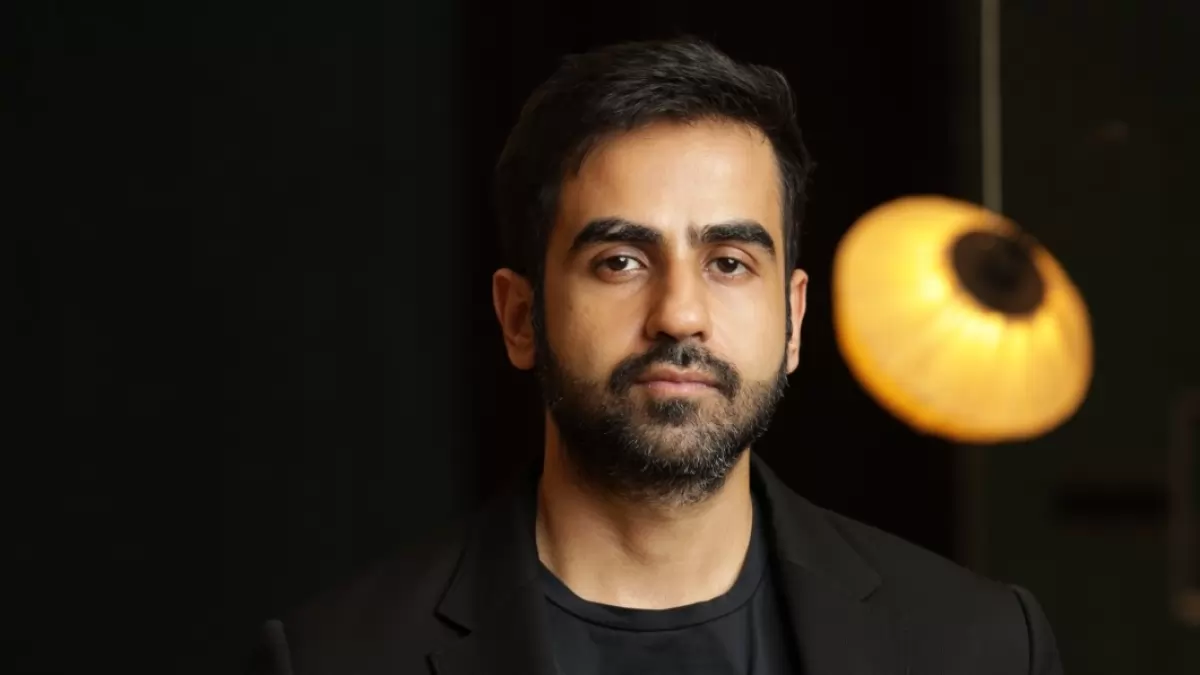The online brokerage unicorn’s founder finds the high philanthropic expectations from start-ups unfair since several venture capitalists fund them, they might not be profitable or have the moat of the assets that traditional businesses have

At 36, Nikhil Kamath, co-founder of Zerodha and True Beacon, became the youngest philanthropist in the Edelgive Hurun India Philanthropy List 2022.
Passionate about causes like climate change solutions and livelihoods, he and his brother Nithin, who co-founded the online brokerage unicorn Zerodha, have contributed Rs 100 crore to Rainmatter Foundation. This marked a 308 per cent year-on-year increase in their philanthropic donations.
The brothers have pledged a quarter of their wealth to philanthropy and have plans to give back Rs 750 crore to society over the next three years. Kamath tells Outlook Business why social conscientiousness is a value close to his heart and how it ties in with Zerodha’s ethos.
Do you earmark a certain percentage of your annual revenues for philanthropic activities?
While the government mandates 2 per cent, what we do at Zerodha is way beyond that. While no percentage is attached to our philanthropic activities, it is growing progressively every year.
We intend to do a lot more and I hope our charitable actions grow from 300 per cent to 400 per cent in the foreseeable future.
Incidentally, doing charity work is tasking because you need to find the right causes and the right team to run a project efficiently. We have scaled with our resources and believe we are doing a reasonably efficient job of running charitable projects without leakages.
Why should start-ups drive social change right from the beginning of their lifecycle?
It is not just start-ups; they are just a sub-category of the industry at large. Often, people feel the scale of contribution is what matters, which will change only when everyone gets involved.
It is unlikely that any problem will get solved immaterial of how much one individual or a bunch of people do. The only long-term solution is for everyone to get more involved in whichever community they are a part of, and we encourage them to do that.
Also, start-ups are given a hard time saying they don’t do enough. In a world where start-ups are funded by several venture capitalists, often based overseas, it is harsh to gauge them against traditional industries in the country.
I would assume that the top five industrialists would have to do much more, comparatively. It is harder for start-ups to do as much as they might not be profitable, and might not have a moat of assets that old-school businesses have.

How can philanthropic activities also be beneficial for a start-up’s business?
Culturally, it motivates employees when they know that a significant portion of what the organisation is building goes towards the right causes.
Do you think there are any tangible benefits too, like customers wanting to be associated with a socially-conscious brand?
I hope things move in that direction; where the clothes they buy or the restaurant they dine in are not chosen based on who has the best marketing strategy but on how conscientious those brands are towards the communities we share. And that consumers give more weightage to that element when choosing a brand.
Patagonia is a great example (Patagonia founder Yvon Chouinard and his family recently announced that they are giving away their outdoor clothing and gear company to help fight the climate change crisis). I hope more people speak about stories like these, which support social change.
How can start-up founders leverage tech know-how to address a growing list of humanitarian and social issues?
Most of them are already doing that. For example, we run a project around education in government schools of Karnataka, especially in Bangalore, where most unicorn founders are my friends. When I called them, each one was eager to help in some way. If someone was running an edtech start-up, he was willing to run free courses or upskill the teachers.
I don’t think money should be the only tangible metric for philanthropy. In many cases, time is as valuable, if not more.
How has Zerodha made charity a strategic component of its business identity?
I would take zero credit for the philanthropy at Zerodha, because we have a great foundation headed by Sameer Shisodia, the chief executive officer of the Rainmatter Foundation. They have a strict screening process for every cause that we support.
In addition to Rainmatter Foundation, does Zerodha plan to be associated with any other cause?
At Zerodha, we work with Rainmatter Foundation. Outside of Zerodha, we pick up several causes. We started The Young India Philanthropic Pledge, where we got around eight unicorn founders and did projects around education and malnutrition.
So, we sent supplies when there were floods in Assam. During the pandemic, we did several projects, including one where we cooked and distributed over 20,000 meals daily. We also ran a free medical assistance service with over 20 ambulances to ferry people to the hospital and offered free treatment at a mini-hospital for COVID patients.
So, it is very opportune, and we support anyone doing something for society. However, the majority of our philanthropy remains Shisodia and the Rainmatter Foundation team.
Rario, an NFT marketplace that focuses on cricket-themed collectibles of athletes globally, has received an equity investment from Tendulkar
The company said that its express parcel volumes remained stable during the second quarter driven by festive season sales, especially in the Heavy Goods category
Swiggy has partnered with leading restaurants and hired Delivery Executives for its maiden operations in Port Blair